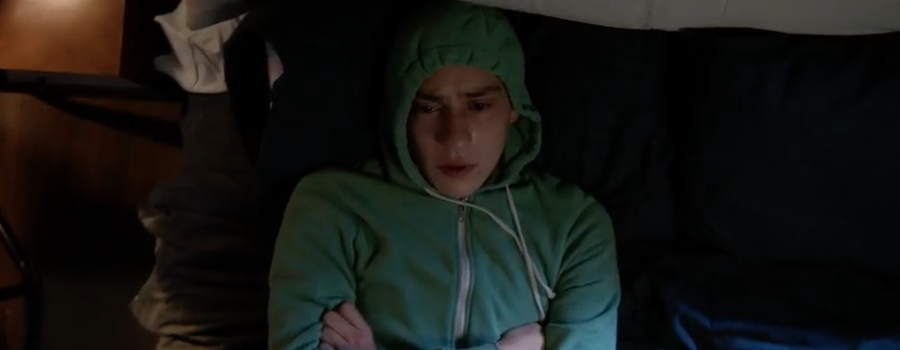Warning: spoilers ahead for Atypical
Television shows are increasingly becoming about real issues. We have shows that discuss mental illness, eating disorders and abuse. Now, we seeing many shows and characters that discuss the autism spectrum. Atypical is the latest show that attempts to bring the conversation into the mainstream media. The show follows not only what it is like to be a kid on the spectrum, but how it affects the entire family.
Sam (Keir Gilchrist) is 18, and desperate for a girlfriend. Or sex. He isn’t too fussed. His therapist Julia (Amy Okunda) encourages him to pursue this, unaware that she is the object of his affections. He wants to be independent, and while high functioning, he still has a lot of difficulty. Dating for neurotypical people is hard enough as it is. His senses are constantly overwhelmed. He can’t grasp emotional and social cues (in one episode, he makes a pros and cons list about a girl he may be interested in) and he has the compulsive obsessions that is often associated with Aspergers. I now know way more than I need to about Antarctica.

Casey (Bridgette Lundy-Paine), Sam’s sister, is brutal to anyone who bullies not only her brother, but other people she believes can’t defend themselves. Her moral compass, while not always reacting in an acceptable way, is aimed at true north. When she finds love and is given the opportunity to live her own life, it almost all comes crashing down when she realises she needs to consider her brother, and not just what she wants.
Elsa (Jennifer Jason Leigh) is the overbearing mother, who threw herself into everything autism-related when her son was diagnosed. She was the one who stuck around. She went to everything she could to help understand her son’s mind. However, now that he is trying to push away, she goes into a downward spiral. Her newfound spare time crushes her, and her decisions could break her whole family
Doug (Michael Rapaport) is almost the typical sitcom dad. He’s a little distant from the son he doesn’t quite understand, but he craves the father-son relationship. He couldn’t handle everything that came with having a child with autism, and had left for a while. He came back, but he’s always felt this guilt. It’s prevented him from being the father he so clearly wants to be. Now that Sam is interested in dating, maybe there is some light at the end of the tunnel for fatherly advice and bonding.
With all shows that tackle topics like these, there are good and bad points. Atypical has clearly done its research into autism, however, it has picked a lot of the more common symptoms of autism. While there are some serious portrayals (Sam has a complete breakdown on a bus after being rejected by Julia), it is mostly a lighthearted show.
What about the darker portrayals of autism? A mother in a group
therapy sessions reminds the group that those with higher functioning kids may forget how difficult for those with children not on that level. Another mother professes to almost crying when her kid strings three words together, because he’s non verbal. If we are going to have portrayals of autism, why not illustrate more than one type?

A writer from The Guardian accuses the show of having, “tons of clunky exposition and autism 101 lectures shoehorned in, especially among characters who would surely know this stuff by now.”
The text specifically refers to a part of the show where Doug is schooled on ‘people-first’ language in a group therapy session. He’s unaware of the concept because he just views his son as his son, but it does seem weird. Why not have a character like Paige (Jenna Boyd), Sam’s prospective girlfriend, get schooled by Elsa on the issue? Or someone else who has had little contact with people with autism? The lesson is needed. Even mainstream news media can’t seem to get it right, but the delivery is clumsy.
While it does hit the mark in some areas, is there more to be done? Probably? Does Atypical make a good starting off point? Yes.
Season one of Atypical is now streaming on Netflix.


